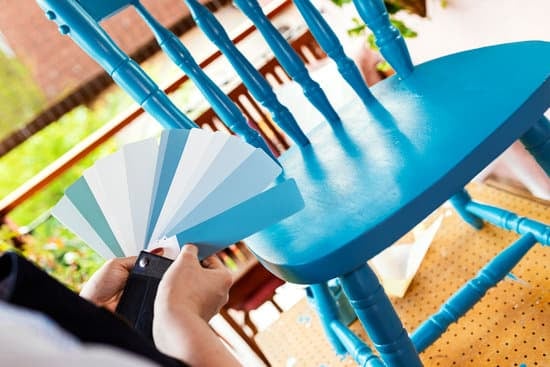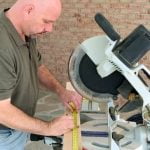Many homeowners often wonder, “Can I deduct home improvements?” The answer lies in understanding the intricacies of home improvement deductions and the guidelines set forth by the IRS. Home improvements can potentially offer tax benefits, but it is important to know what qualifies as a deduction and how to properly claim them on your taxes.
When it comes to deducting home improvements, it is essential to identify what expenses qualify for tax deductions. While not all home upgrades may be eligible for deductions, certain improvements that enhance the value of your property or make it more energy-efficient may meet IRS guidelines for tax benefits. Understanding these qualifications can help maximize potential savings during tax season.
The IRS provides specific guidelines regarding deductions for home improvements, including limits and restrictions that homeowners must adhere to. Keeping detailed records of expenses incurred for home renovations is crucial in order to accurately claim these deductions. Additionally, consulting with a tax professional can provide further insight into the options available and ensure compliance with IRS regulations. By familiarizing yourself with the rules surrounding home improvement deductions, you can make informed decisions when planning upgrades for your property.
What Qualifies as a Home Improvement?
Home improvements are a great way to enhance the value and functionality of your home. But did you know that some of these expenses may be tax-deductible? Understanding what qualifies as a home improvement for tax purposes is essential to maximize your deductions and potential refunds. Here are some key points to consider when determining if a project can be categorized as a deductible home improvement:
- Structural Updates: Any renovations that improve the structural integrity of your home, such as roof replacements, foundation repairs, or adding an extra room, typically qualify as deductible home improvements.
- Upgrades for Energy Efficiency: Making energy-efficient upgrades like installing solar panels, upgrading insulation, or replacing windows with energy-efficient ones can also qualify for deductions.
- Health and Safety Improvements: Expenses related to making your home safer or more accessible for those with disabilities may also be considered deductible, such as installing wheelchair ramps or grab bars.
When considering whether a project qualifies as a deductible home improvement, it’s important to note that regular maintenance or repairs do not usually count. The IRS distinguishes between repairs (which are necessary to maintain the property’s value) and improvements (which increase the property’s value). However, if a repair is part of a larger improvement project, you may be able to deduct that portion of the expense.
Remember that before claiming any deduction for home improvements on your taxes, it is crucial to keep detailed records of all expenses related to the project. This includes invoices, receipts, contracts, and any other relevant documentation. Being able to provide proof of payment and work done will help support your deduction claim in case of an audit by the IRS.
Now that you have a better understanding of what qualifies as a deductible home improvement, you can explore ways to potentially reduce your tax liability while investing in your property. Consult with a tax professional who can provide personalized advice based on your specific circumstances and help you navigate through the process of claiming these deductions effectively. With careful planning and proper documentation, you can i deduct home improvements on your taxes and maximize your savings.
IRS Guidelines for Deducting Home Improvements
The IRS Guidelines for Deducting Home Improvements provide taxpayers with important information on what expenses can be deducted when it comes to improving their homes. Generally, home improvements that increase the value of the property or extend its useful life can be considered deductible. This can include renovations, additions, upgrades, and repairs that enhance the overall quality of the home. However, it’s essential to keep in mind that not all home improvement expenses are eligible for deductions.
One key factor to consider when determining if a home improvement expense is deductible is whether it is classified as a repair or an improvement. Repairs that simply maintain the current condition of the property are usually not deductible, while improvements that add value or prolong the life of the property might be eligible for deductions.
Additionally, expenses related to home improvements must be directly tied to your primary residence in order to qualify for deductions. Expenses incurred for a vacation home or rental property may not be eligible.
It’s important for homeowners to keep detailed records of their home improvement expenses in order to accurately claim deductions on their taxes. This documentation should include receipts, invoices, contracts, and any other relevant paperwork that shows the cost and nature of the improvements.
By maintaining organized records, homeowners can ensure they have the necessary evidence to support their deduction claims in case of an IRS audit. The key takeaway is to stay informed about what qualifies as a deductible home improvement expense and diligently track your expenditures to maximize potential tax benefits.
| Home Improvement Expense | Deductibility |
|---|---|
| New Roof Installation | Generally deductible due to enhancing property value |
| Repairing Water Damage | May not be fully deductible if considered a maintenance issue |
| Solar Panel Installation | Deductible under energy-efficient improvement guidelines |
Tracking Expenses
When it comes to seeking deductions for home improvements on your taxes, keeping detailed records of expenses is crucial. By maintaining thorough documentation, you can ensure that you have the necessary information to claim any eligible deductions and potentially reduce your taxable income.
Receipts and Invoices
One key aspect of tracking expenses for home improvement deductions is saving all receipts and invoices related to the work done. This includes materials purchased, contractor fees, permits, and any other costs associated with the improvement project. Having a paper trail of these expenses
Documentation of Before-and-After
Another important record to keep is documentation of the state of your property before and after the improvement. This
Tracking Software or Spreadsheets
To streamline the process of recording expenses for home improvements, consider using tracking software or creating a spreadsheet dedicated to this purpose. Organizing costs by category and date
Home Office Deductions for Home Improvements
When it comes to home office deductions for home improvements, it’s important to understand what qualifies under the IRS guidelines. Home office deductions can be claimed if the space is used regularly and exclusively for business purposes. This means that if you have a dedicated area in your home that is solely used as your office, you may be eligible to deduct certain home improvement expenses related to that space.
Qualifying home improvements for a home office deduction can include renovations such as adding built-in shelves or cabinets, installing new lighting fixtures, replacing flooring, or even painting the walls. These improvements must directly benefit the home office space and not be considered personal in nature. It’s crucial to keep detailed records of all expenses related to these improvements, including receipts and invoices, to support your deduction claims.
According to the IRS guidelines, home office deductions for home improvements are subject to certain restrictions and limitations. Expenses incurred for general repairs or maintenance of your entire property cannot be deducted, but specific improvements made exclusively for the home office area can be eligible.
Additionally, if you claim depreciation on your home as part of your business use, it might affect the deductible amount for qualified home improvement expenses. Consulting with a tax professional can provide clarity on how these rules apply to your specific situation and help you maximize your deductions effectively.
| Category | Criteria |
|---|---|
| Qualified Expenses | Renovations directly benefiting the home office space |
| Documentation | Keep detailed records of expenses (receipts, invoices) |
| Rules and Restrictions | Restrictions on general repairs/maintenance vs. specific improvements for the home office |
Energy-Efficient Home Improvement Deductions
Energy-efficient home improvements are becoming increasingly popular not only for the positive impact they have on the environment but also for the potential tax benefits they can provide. Making energy-efficient upgrades to your home can help you save money on your energy bills and also potentially qualify you for certain deductions on your taxes.
Here are some energy-efficient home improvements that can qualify for deductions:
- Installing solar panels: One of the most common and beneficial energy-efficient upgrades is installing solar panels on your property. The cost of purchasing and installing solar panels can often be deducted from your taxes, providing you with both immediate savings and long-term benefits.
- Upgrading to energy-efficient appliances: Replacing old, inefficient appliances with newer, energy-efficient models can also be a deductible expense. Look for appliances with high ENERGY STAR ratings to ensure eligibility for deductions.
- Improving insulation and sealing leaks: Enhancing the insulation in your home and sealing any air leaks can significantly reduce your heating and cooling costs. The expenses associated with these improvements may also be deductible.
When considering energy-efficient home improvements that can i deduct home improvements, it is essential to keep detailed records of all expenses related to the upgrades. This includes invoices, receipts, and any documentation provided by contractors or suppliers. Proper record-keeping will not only help you claim deductions accurately but also serve as proof in case of an audit by the IRS.
By taking advantage of deductions for energy-efficient home improvements, homeowners can not only reduce their tax liabilities but also contribute to a more sustainable future. It is crucial to consult with a tax professional to understand the specific guidelines and requirements set forth by the IRS regarding these deductions. With proper planning and documentation, homeowners can i deduct home improvements confidently claim tax benefits for their environmentally friendly upgrades.
Limits and Restrictions on Home Improvement Deductions
When it comes to deducting home improvements on your taxes, it’s important to understand that there are limitations and restrictions in place. While some home improvements may qualify for tax deductions, not all expenses can be claimed. It’s crucial to be aware of these limits to ensure you are following IRS guidelines and maximizing your tax benefits.
Personal Versus Rental Property
One significant restriction on home improvement deductions is whether the property is used for personal purposes or rental purposes. Home improvements made on a personal residence are subject to different rules than those made on rental properties. Generally, improvements made on rental properties are considered business expenses and may be eligible for deductions, while improvements on personal residences may have more restrictions.
Capitalization of Expenses
Another limitation to consider when deducting home improvements is the capitalization of expenses. In some cases, certain home improvements must be capitalized and depreciated over time rather than deducted in the year they were made. This means that you may not be able to claim the full cost of the improvement as a deduction in a single tax year.
Eligible Expenses
It’s also important to note that not all home improvement expenses qualify for deductions. The IRS has specific guidelines on what constitutes a deductible home improvement expense. Generally, improvements that add value to your property or extend its useful life may be eligible for deductions, while repairs and maintenance typically do not qualify. Before claiming any home improvement deductions, it’s essential to ensure that the expenses meet IRS criteria for deductibility.
How to Claim Home Improvement Deductions on Your Taxes
When it comes time to claim home improvement deductions on your taxes, there are a few key steps you should follow to ensure you are maximizing your potential savings. First and foremost, it is important to keep meticulous records of all expenses related to the home improvements you have made. This includes receipts for materials, labor costs, permits, and any other related expenses. By keeping accurate records, you can substantiate your deductions in case of an audit.
It is also crucial to understand the IRS guidelines for deducting home improvements. Generally, in order to qualify for a deduction, the improvement must add value to your home or prolong its useful life. Repairs that are necessary for maintaining the property’s condition may not qualify for a deduction. Additionally, improvements made for aesthetic purposes typically do not qualify either. Consulting with a tax professional can help clarify which home improvements can i deduct and which cannot.
When claiming home improvement deductions on your taxes, be sure to utilize any applicable tax credits or incentives available for energy-efficient upgrades. Installing solar panels, energy-efficient windows or doors, or other environmentally friendly improvements may make you eligible for additional tax savings. Be sure to research and take advantage of any available programs in your area.
Consultation With a Tax Professional
In conclusion, the opportunity to deduct home improvements can be a valuable benefit for homeowners looking to save on their taxes. By understanding what qualifies as a home improvement according to IRS guidelines, individuals can ensure they are making eligible deductions. Keeping detailed records of expenses is crucial in order to claim these deductions accurately and avoid potential issues with the IRS.
For those who work from home, there may also be opportunities to claim home office deductions related to home improvements. This can provide additional tax benefits for individuals who have made improvements specifically for their work space. Additionally, investing in energy-efficient upgrades for your home not only helps reduce utility bills but may also qualify for special deductions.
It is important to note that there are limits and restrictions on home improvement deductions, so consulting with a tax professional is highly recommended. A tax professional can provide guidance on how to properly claim these deductions on your taxes and ensure compliance with tax laws. Ultimately, seeking expert advice can help maximize your tax savings while navigating the complexities of deducting home improvements.
Frequently Asked Questions
Can Home Improvements Be a Tax Write Off?
Home improvements can sometimes be a tax write off, but it largely depends on the nature of the improvement. Generally, repairs that maintain your home’s current condition are not deductible, but improvements that increase your home’s value or adapt it to new uses might qualify.
What Does the IRS Consider Capital Improvements on Home?
The IRS considers capital improvements on a home to be expenses that add value to the property, prolong its useful life, or adapt it to new uses. Examples include adding a new room, installing central air conditioning, or upgrading appliances in a significant way.
Can You Write Off Business Renovation Costs?
Business renovation costs can be written off as a business expense under certain circumstances. If the renovation is necessary for the operation of the business and not just for aesthetic purposes, you may be able to deduct those costs from your taxable income.

I’m thrilled to have you here as a part of the Remodeling Top community. This is where my journey as an architect and remodeling enthusiast intersects with your passion for transforming houses into dream homes.





